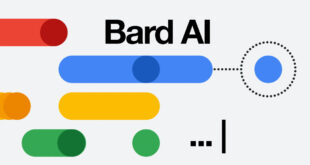Study: Extended Parental Care Helps Juvenile Siberian Jays and New Caledonian Crows Grow Smarter
New research on two corvid species, Siberian jays (Perisoreus infaustus) and New Caledonian crows (Corvus moneduloides), shows that extended family life is crucial to provide the social learning opportunities where juveniles acquire vital skills; the study authors propose that extended parenting could well have led to the extended, lifelong learning found in humans.
A wild Siberian jay parent (left) and its retained offspring (right) foraging together. Image credit: Michael Griesser.
Extended childhood is a key life history trait that impacts on human cognition, giving humans a period of cognitive flexibility to explore more options during learning.
However, extended developmental periods evolved not only in humans and other primates, but also in bats, cetaceans, elephants and several bird families.
But does an extended childhood make other species smart too, and if so, what is the role of parenting?
To answer these questions, Dr. Michael Griesser from the University of Konstanz and Sun Yat-sen University and his colleagues focused on corvids, because these large-brained birds show convergent cognitive abilities that rival apes in many domains, such as in tool manufacture, planning and insight.
The researchers observed two corvid species, Siberian jays and New Caledonian crows, in the wild to understand how young birds’ learning is related to parenting received during adolescence and survival in adulthood.
In Sweden, the authors carried out field experiments to test the ability of young Siberian jays to learn crucial life skills: recognizing a dangerous predator and opening a puzzle box to access food.
Siberian jays are sedentary birds that occur throughout the northern Palearctic.
Their social system has two unique facets that provide insights into the benefits of family living: (i) they don’t breed cooperatively (i.e. only parents incubate and feed young); (ii) their groups consist of a breeding pair, retained offspring and/or unrelated non-breeders; retained offspring can remain up to an age of 4 years with their parents, which is well beyond the mean lifespan of 2.2 years.
In the study, young Siberian jays that stayed with their parents longer benefitted from being with their parents.
They learned faster by watching their parents and received more food from their parents. As a consequence, they were more likely to live longer and to start their own family.
A New Caledonian crow uses a twig. Image credit: Jolyon Troscianko.
New Caledonian crows are endemic to the South Pacific island of New Caledonia, where they live in family groups with extended dependency periods: offspring can be fed by their parents for up to 2 years.
At a site on this tropical island, the scientists followed New Caledonian crows to track how juveniles learn a key survival skill: making tools for food retrieval. It takes about a year to learn this skill — a costly time investment for the parents who still have to feed the young.
Parents and other adults are extremely tolerant to young crows. While adults are using a tool to get food, they feed the juveniles, let them watch closely, and even tolerate tool theft and physical contact by juveniles.
As a result of this tolerant learning environment, New Caledonian crows have the largest brain size for their body size of all corvids.
“Extended parenting has profound consequences for learning and intelligence,” Dr. Griesser said.
“Learning opportunities arise from the interplay between extended childhood and extended parenting. The safe haven provided by extended parenting is critical for learning opportunities. It creates extended developmental periods that feed back into the extended childhood.”
“In addition to benefiting young learners, extended parenting helps pay for the costs of an extended childhood,” the researchers said.
“Having to feed extra mouths is costly, but when there is enough food available in the environment, parents can afford to keep on feeding the young for longer.”
“With a safe haven, young birds have the time to grow a larger brain, learn difficult skills, and access vital food resources. These acquired skills lead to better survival, and possibly also allow the species to expand into new environments.”
The team also used phylogenetic comparative methods to analyze the differences between corvids and all other passerines.
“Both humans and corvids spend their youth learning vital skills, surrounded by tolerant adults which support their long learning process,” said first author Dr. Natalie Uomini, a researcher in the Max Planck Institute for the Science of Human History.
“Moreover, corvids and humans have the ability for lifelong learning — a flexible kind of intelligence which allows individuals to adapt to changing environments throughout their lifetime.”
“In the light of this study, the importance of parenting comes into even greater focus. Parents have a vital role in helping young brains grow smarter,” the scientists said.
“Children, like young birds, cannot learn skills in isolation. Instead they need a nurturing, supportive environment that allows the full potential of their large brains to develop.”
The research is published in the journal Philosophical Transactions of the Royal Society B.
_____
Natalie Uomini et al. 2020. Extended parenting and the evolution of cognition. Phil. Trans. R. Soc. B 375 (1803): 20190495; doi: 10.1098/rstb.2019.0495
 #Bizwhiznetwork.com Innovation ΛI |Technology News
#Bizwhiznetwork.com Innovation ΛI |Technology News





